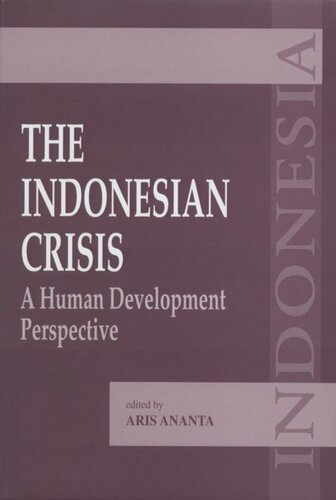

Most ebook files are in PDF format, so you can easily read them using various software such as Foxit Reader or directly on the Google Chrome browser.
Some ebook files are released by publishers in other formats such as .awz, .mobi, .epub, .fb2, etc. You may need to install specific software to read these formats on mobile/PC, such as Calibre.
Please read the tutorial at this link: https://ebookbell.com/faq
We offer FREE conversion to the popular formats you request; however, this may take some time. Therefore, right after payment, please email us, and we will try to provide the service as quickly as possible.
For some exceptional file formats or broken links (if any), please refrain from opening any disputes. Instead, email us first, and we will try to assist within a maximum of 6 hours.
EbookBell Team

4.8
14 reviewsThe book focuses on the impact of the 1997-99 economic crisis on human development in Indonesia, especially in 1998, its worst year. Based on the definition used by the UNDP, human development is analysed as covering human capital (education and health) and purchasing power. In this book, the concept of human capital is broadened to include freedom from fear, health, education, and migration. The first part of the book discusses the economic situation in Indonesia. The second elaborates on what happened to human capital during the crisis and the third part examines its effects on purchasing power. Because human development does not occur in a vacuum, the fourth part discusses some emerging issues in Indonesia. The book concludes with some thoughts on people-centred development, which may contribute to more sustainable development than the development concept that simply pursues high economic growth. With this people-centred development, growth rates of about 3 to 4 per cent are adequate, as long as Indonesia achieves success in human development.